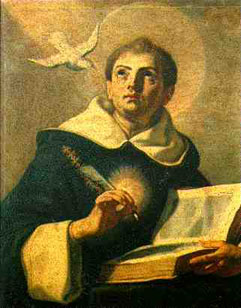Patristic and Scholastic Philosophy
Patristic Philosophy exhibits all the characteristics of the age to which it belonged, the era of the struggle and triumph of Christianity and of the first adjustment of Christian thought to pagan civilization and culture. To the period of struggled belongs the work of the Apologists; to the first centuries of triumph belong the earliest constructive attempts of the Alexandrian school; while to the later centuries of the period intervening between the triumph of Christianity and the invasion of the barbarians belongs St. Augustine’s systematic effort to harmonize Christian teaching with the greatest achievements of pagan thought. Scholastic philosophy, which begins with the reconstruction of European civilization in the ninth century, was from the outset a reaction against the intellectual stupor of the times. The movement was at first confirmed merely to the restoration of the study of grammar and rhetoric. Later on, dialectic assumed in the schools more importance than it had at first possessed. Thus during the ninth and tenth centuries there were many attempts at forming a system of philosophy, but it was not until the eleventh century, when the problem of universals gave the greatest impulse to the growth of Scholastic dialectic, that these attempts were concentrated into a definite movement. Towards the end of the twelfth century the physical and metaphysical writings of Aristotle became known to the schoolmen and caused and great outburst of intellectual activity which made the thirteenth century the Golden Age of Scholasticism. One of prominent scholastics is the erudite father and doctor of the Church, St. Thomas Aquinas.
Saint Augustine

St. Augustine is a fourth century philosopher whose groundbreaking philosophy infused Christian doctrine with Neoplatonism. He is famous for being an inimitable Catholic theologian and for his agnostic contributions to Western philosophy. He argues that skeptics have no basis for claiming to know that there is no knowledge. In a proof for existence similar to one later made famous by René Descartes, Augustine says, “[Even] If I am mistaken, I am.” He is the first Western philosopher to promote what has come to be called “the argument by analogy” against solipsism: there are bodies external to mine that behave as I behave and that appear to be nourished as mine is nourished; so, by analogy, I am justified in believing that these bodies have a similar mental life to mine. Augustine believes reason to be a uniquely human cognitive capacity that comprehends deductive truths and logical necessity. Additionally, Augustine adopts a subjective view of time and says that time is nothing in reality but exists only in the human mind’s apprehension of reality. He believes that time is not infinite because God “created” it.
Augustine tries to reconcile his beliefs about freewill, especially the belief that humans are morally responsible for their actions, with his belief that one’s life is predestined. Though initially optimistic about the ability of humans to behave morally, at the end he is pessimistic, and thinks that original sin makes human moral behavior nearly impossible: if it were not for the rare appearance of an accidental and undeserved Grace of God, humans could not be moral. Augustine’s theological discussion of freewill is relevant to a non-religious discussion regardless of the religious-specific language he uses; one can switch Augustine’s “omnipotent being” and “original sin” explanation of predestination for the present day “biology” explanation of predestination; the latter tendency is apparent in modern slogans such as “biology is destiny.” Download
St. Thomas Aquinas

Saint Thomas Aquinas was a Catholic Priest in the Dominican Order and one of the most important Medieval philosophers and theologians. He was immensely influenced by scholasticism and Aristotle and known for his synthesis of the two aforementioned traditions. Although he wrote many works of philosophy and theology throughout his life, his most influential work is the Summa Theologica which consists of three parts.
The first part is on God. In it, he gives five proofs for God’s existence as well as an explication of His attributes. He argues for the actuality and incorporeality of God as the unmoved mover and describes how God moves through His thinking and willing.
The second part is on Ethics. Thomas argues for a variation of the Aristotelian Virtue Ethics. However, unlike Aristotle, he argues for a connection between the virtuous man and God by explaining how the virtuous act is one towards the blessedness of the Beatific Vision (beata visio).
The last part of the Summa is on Christ and was unfinished when Thomas died. In it, he shows how Christ not only offers salvation, but represents and protects humanity on Earth and in Heaven. This part also briefly discusses the sacraments and eschatology. The Summa remains the most influential of Thomas’s works and is mostly what will be discussed in this overview of his philosophy. Download